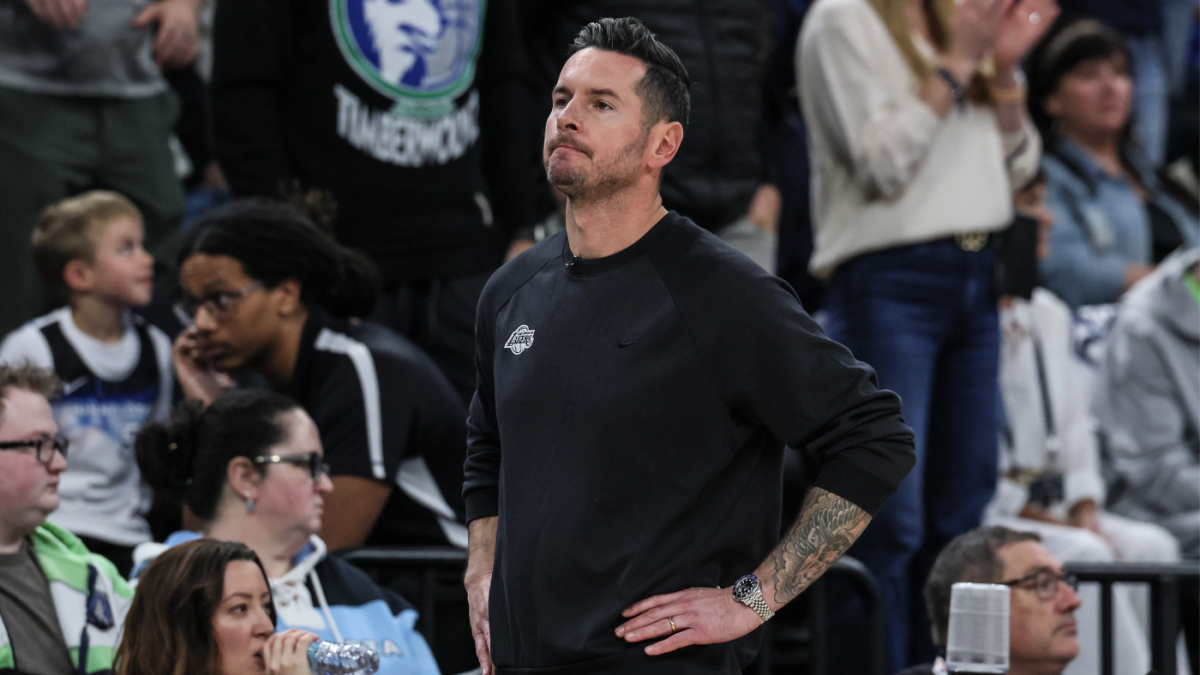JJ Redick’s Press Conference Stormout: A Detailed Analysis
The recent incident involving Los Angeles Lakers head coach JJ Redick storming out of a pregame press conference has ignited significant discussion and debate. This event, occurring just before a pivotal Game 5 against the Minnesota Timberwolves, underscores the intense pressure and scrutiny that coaches face, especially during high-stakes playoff games. This analysis explores the context, implications, and broader significance of Redick’s actions.
Context of the Incident
The Lead-Up to Game 5
The Los Angeles Lakers were teetering on the edge of elimination in their first-round playoff series against the Minnesota Timberwolves. With the season hanging in the balance, the stakes were incredibly high. Redick, who had faced criticism for his lineup decisions in Game 4, was already under intense scrutiny. The media and fans were eager for answers, and the pressure was palpable.
The Press Conference
During the pregame press conference, Redick was asked about his lineup decisions, specifically why he used the same five players for all 24 minutes of the second half in Game 4. This question seemed to trigger a strong reaction from Redick, who perceived it as a challenge to his coaching abilities. He responded defensively, questioning the reporter’s assumptions about his experience and decision-making. The tension escalated quickly, leading Redick to storm out of the press conference.
The Immediate Impact
Media and Public Reaction
The incident immediately became a hot topic in sports media and among Lakers fans. Social media platforms buzzed with reactions, ranging from support for Redick’s passion to criticism of his handling of the situation. Many fans and analysts questioned whether Redick’s outburst was a sign of his inexperience as a coach or a justified reaction to unfair criticism.
Team Dynamics
The stormout also raised questions about the team’s morale and cohesion. Coaches often serve as the emotional barometer for their teams, and Redick’s outburst could have either galvanized the players or added to their stress. The Lakers needed a united front going into Game 5, and the incident could have either strengthened their resolve or created unnecessary distractions.
Broader Implications
Coaching Under Pressure
Redick’s actions highlight the immense pressure that coaches face, especially during playoff seasons. The decisions they make can determine the fate of their teams, and every move is scrutinized by fans, media, and analysts. This pressure can sometimes lead to emotional outbursts, as seen in Redick’s case. However, it also underscores the need for coaches to maintain composure and professionalism, even in the face of intense criticism.
Media Relations
The incident also sheds light on the complex relationship between coaches and the media. While the media plays a crucial role in keeping fans informed and holding coaches accountable, their questions can sometimes be perceived as unfair or disrespectful. Coaches must navigate this delicate balance, responding to criticism constructively while maintaining their authority and credibility.
Leadership and Resilience
Redick’s stormout also raises questions about his leadership style and resilience. As a relatively new coach, he is still learning to handle the pressures of the NBA. His reaction to the reporter’s question could be seen as a lack of resilience or a failure to manage criticism effectively. However, it could also be viewed as a moment of human vulnerability, showing that even the most experienced coaches can struggle under intense pressure.
The Role of Experience
Experience plays a pivotal role in how coaches handle pressure and criticism. Veteran coaches often have a thicker skin and a deeper reservoir of strategies to manage stress. Redick, with his background as a player, brings a unique perspective to coaching, but he is still honing his skills in this new role. His reaction to the press conference question could be a growing pain, a moment where his player mindset clashed with the demands of coaching.
The Impact on Team Morale
The stormout could have a ripple effect on the team’s morale. Players look to their coach for guidance and stability. Redick’s outburst could either inspire them to fight harder, seeing his passion as a sign of his commitment, or it could unsettle them, making them question his leadership. The Lakers’ performance in Game 5 and beyond will provide insights into how the team responded to this incident.
The Psychological Aspect
Mental Toughness
Mental toughness is a crucial trait for coaches, especially during high-pressure situations. Redick’s outburst could be seen as a lapse in mental toughness, but it could also be a sign of his human side. Coaches are not robots; they have emotions and can be affected by stress. The key is to manage these emotions effectively and not let them derail the team’s performance.
Emotional Intelligence
Emotional intelligence is another critical factor. Redick’s ability to understand and manage his emotions, as well as recognize and influence the emotions of others, will be vital. His outburst could be a learning moment, helping him develop better emotional intelligence and resilience in the face of criticism.
Conclusion: A Moment of Reflection
The stormout by JJ Redick serves as a reminder of the high-stakes world of professional sports, where every decision and reaction is under intense scrutiny. While the incident may have been a moment of frustration for Redick, it also provides an opportunity for reflection and growth. Coaches must learn to manage criticism and pressure effectively, maintaining their composure and professionalism even in the most challenging situations. As the Lakers move forward, Redick’s ability to bounce back from this incident will be crucial in determining his coaching legacy and the team’s success. This moment is not just about Redick but about the broader challenges and pressures that coaches face in the modern sports landscape. It is a testament to the resilience and adaptability required to thrive in such an environment.

